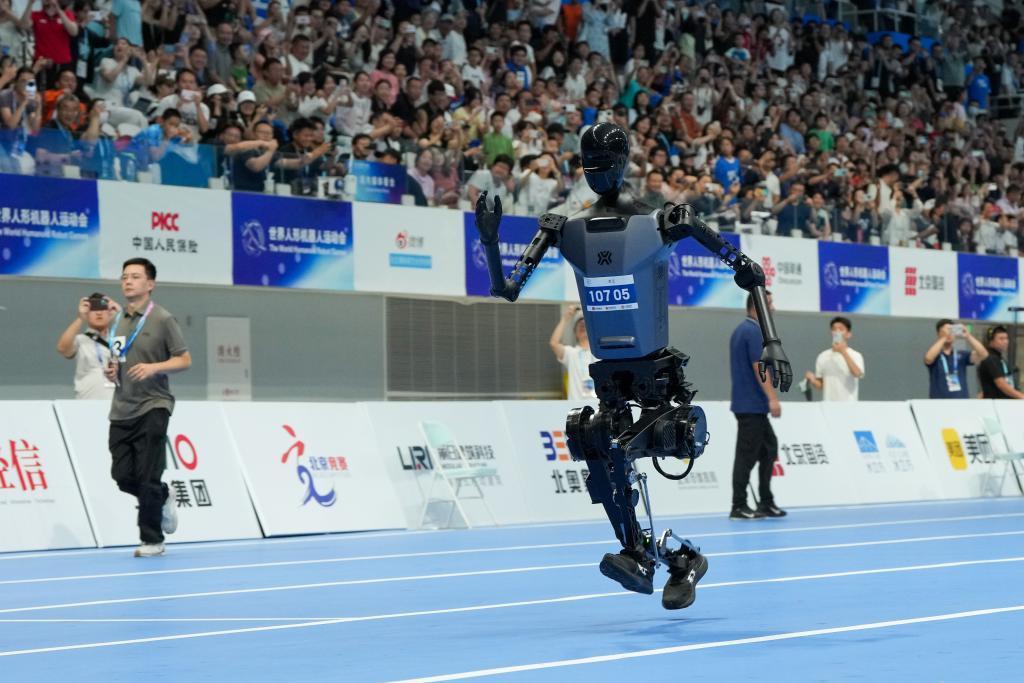Humanoid Robots Sprint in Beijing

On August 17, four special athletes — two Unitree H1 robots and two Tien Kung Ultra robots — competed for the 100m sprint gold medal at the first World Humanoid Robot Games in Beijing's National Speed Skating Oval.
When the starting gun fired, the two Unitree H1 robots were the first to dash forward. Their slender, elongated legs with an extremely fast step frequency propelled them forward in long, fluid strides. During the previous day's semi-finals, these H1 units had clocked in at nearly 20 seconds.
The Tien Kung Ultra robots didn't lag behind. This model had won the previous humanoid robot half marathon. Unlike the two Unitree rivals, they were without remote control, using their own vision systems and lane-keeping technology from the autonomous vehicle research field to achieve full autonomy in the race.
The results came in soon. The two H1 robots finished in 22.08 seconds and 24.53 seconds, respectively. However, due to the Games' unique rule — that while remote-controlled robots received no time multiplier, autonomous ones had their times multiplied by a 0.8 coefficient — the Tien Kung robot with a time of 21.50 seconds won the gold.
The 100m sprint was the most fiercely contested event at the Games, with 90 robotic competitors across 23 groups. Only four teams made the final cut after competing in two rounds.







